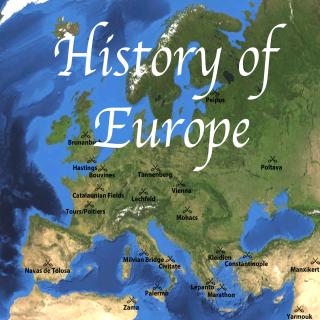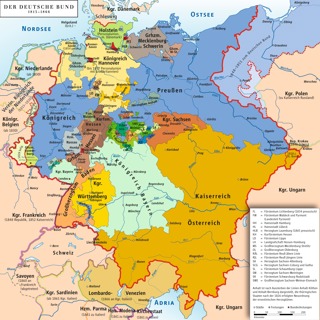
70.1 Battle of Königgrätz 1866 - Background
Any list of decisive battles of European history would be incomplete without a battle which occurred on 3 July 1866 near the town of Königgrätz, in the north of the today’s Czech Republic.The victorious allies of the Schleswig War of 1864, the Austrian Empire and the Kingdom of Prussia, soon after fall out with each other and go to war.Austria faces great challenges - in the centre of Europe and facing in two directions – north and west to Germany, and south and east to a number of various ethnicities in eastern Europe and the Balkanswww.patreon.com/historyeuropewww.historyeurope.netMusic composed by Camille Saint-saens: The Carnival of the Animals - Aquarium and SwanPicture - Map of Central Europe Hosted on Acast. See acast.com/privacy for more information.
23 Sep 202220min
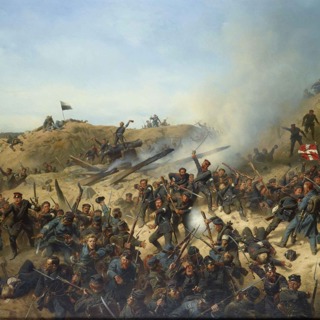
69.2 Schleswig War of 1864
When in November 1863 King Frederick VII of Denmark died, a dispute arose over who had a legitimate claim to rule over the Duchies of Schleswig and Holstein. Otto von Bismarck saw this as a great opportunity to increase Prussian power in the region and decided, together with the Austrians, to invade Denmark.The key battle in the war was the siege of Dybbøl in April 1864This month, August 2022, I'm doing a cycling challenge to raise money for Brain Tumour Research. More info at: www.justgiving.com/fundraising/carl-rylett-cycle274www.patreon.com/historyeuropewww.historyeurope.netMusic composed by Anton Bruckner (Erinnerung) and Sergei Rachmaninoff (Preludes, number 10, Lento in B minor)Picture - Siege of Dybbol Hosted on Acast. See acast.com/privacy for more information.
26 Aug 202223min
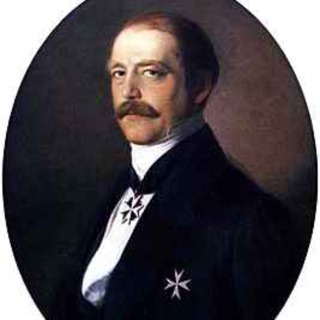
69.1 Schleswig War of 1864 - Background
A border dispute between the German Confederation and the Kingdom of Denmark in the regions of Schleswig and Holstein breaks out into an inconclusive war in 1848-1850, and tensions remain into the 1860's.Meanwhile, a common culture was developing across the German population of Europe, with the literary works of Goethe and Schiller, and philosophers Kant and Hegel. On the political scene, Otto von Bismarck rises to power as the Prussian chief minister. He urges the need for the king’s military reforms, famously stating that the great questions of the time would not be resolved by speeches or parliamentary votes but by ‘iron and blood’.This month, August 2022, I'm doing a cycling challenge to raise money for Brain Tumour Research. More info at: www.justgiving.com/fundraising/carl-rylett-cycle274www.patreon.com/historyeuropewww.historyeurope.netMusic composed by Edvard Grieg (Peer Gynt Suite - Aase's Death, Anitra's Dance)Picture - Otto von Bismarck Hosted on Acast. See acast.com/privacy for more information.
19 Aug 202223min
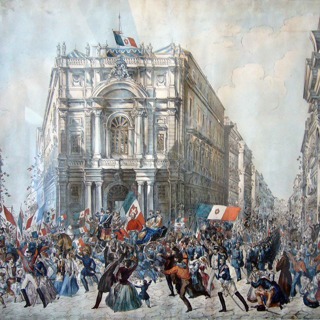
68.2 War of Italian Unification
Napoleon III of France and Cavour, chief minister of Piedmont come to an agreement to try to remove Austrian influence from the Italian peninsula, and provoke Vienna into war. One of the largest battles was at Solferino where there were three monarchs - Franz Joseph of Austria, Victor Emanuel of Piedmont and Napoleon III. The ensuing conflict lasted until 1861 when finally emerged the brand new nation of Italywww.patreon.com/historyeuropewww.historyeurope.netMusic composed by Giuseppe Verdi - Overture, Iphigenia In Aulis; La Traviata - Conclusion - Ah, fors' e lui. Courtesy of musopen.org.Picture - Entry of Garibaldi to Napoli, by Franz Wenzel Schwarz Hosted on Acast. See acast.com/privacy for more information.
29 Juli 202233min
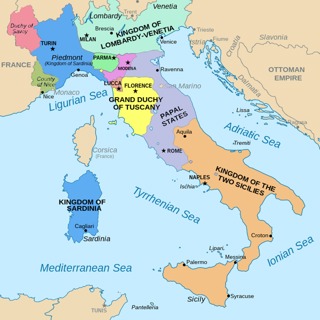
68.1 War of Italian Unification - Background
The Napoleonic Wars had a dramatic impact on Italy, completing redrawing boundaries. Even though the French were defeated, many of their political reforms were to be both profound and long-lasting. And the temporary unification of parts of the peninsula encouraged Italians to be aware of a common nationality. Yet only decades afterwards would there be real change. Some of the protagonists were Giuseppe Garibaldi, Giuseppe Mazzini and Camillo Cavour, the Prime Minister of Piedmontwww.patreon.com/historyeuropewww.historyeurope.netMusic composed by Franz Liszt - Die Loreley, S. 532 (Piano Solo)and Mikhail Glinka - Trio Pathétique Hosted on Acast. See acast.com/privacy for more information.
22 Juli 202224min
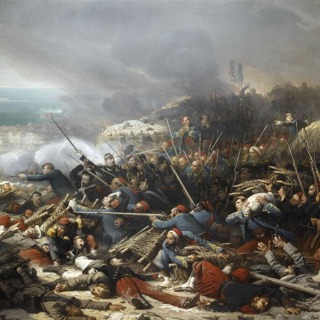
67.4 Crimean War - Siege of Sevastopol
An allied army of British, French and Italians besiege the Crimean port of Sevastopol in late 1854. Fighting also took place in the Baltic Sea and in the Far East, and in the Caucasus mountains at the siege of the fortress of Kars. The main event at Sevastopol was particularly protracted and bloody as the allies attempted to break through into the citywww.patreon.com/historyeuropewww.historyeurope.netMusic composed by Frederich Chopin: Preludes No. 7 'The Polish dancer'; Nocturne in F sharp majorPicture - Battle of Malakoff Hosted on Acast. See acast.com/privacy for more information.
24 Juni 202227min
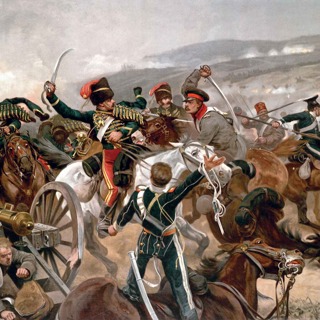
67.3 Crimean War - Russia invades Moldavia and Wallachia
The Russians invade Moldavia and Wallachia (in modern day Romania) and destroy the Ottoman Black Sea fleet at Sinop. Under public pressure, the French and British governments, concerned about growing Russian power, decide to send in troops to force the invaders to retreat. Seeking to neutralise the Russian threat in the Black Sea and Mediterranean, the Allies decide to invade Crimea. One of several early skirmishes was the famous 'charge of the light brigade'www.patreon.com/historyeuropewww.historyeurope.netMusic composed by Frederich ChopinPicture - British cavalry charging against Russian forces at Balaclava Hosted on Acast. See acast.com/privacy for more information.
17 Juni 202223min
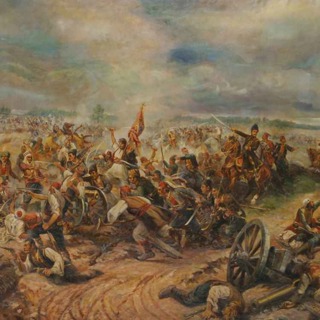
67.2 Crimean War 1853 - Beginning
The Ottoman Sultans attempt to reform their army and state, under pressure from outside powers, most notably Tsar Nicholas I of Russia, who lays claim to protecting Orthodox Christians within the Ottoman Empire. The Crimean War begins when Russia invades the Orthodox territories of Moldavia and Wallachia in modern day Romania.www.patreon.com/historyeuropewww.historyeurope.netMusic from Frederich Chopin: Nocturne in B flat minor, no. 1, and Polonaise no. 1Picture - The First Serbian Uprising (1804–1813) against the Ottoman Empire Hosted on Acast. See acast.com/privacy for more information.
10 Juni 202225min
